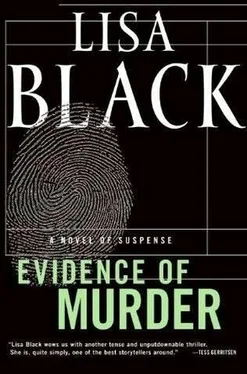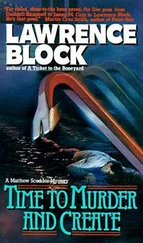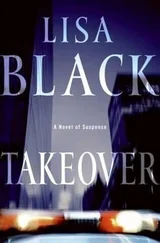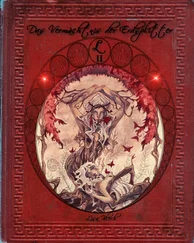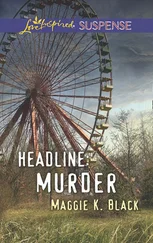“Have you found out any more about Jillian’s death?”
“No.” She emerged from the trees and stepped onto the concrete path. Drew Fleming slouched in the same jersey jacket, not warm enough for the weather, and wiped his nose with one knit-gloved hand. He looked even worse than he had two days before. Pale as the snow around them, with eyes so reddened the insides of the lids resembled raw steak. Here lived the grief so conspicuously absent from Evan Kovacic. Or could it be guilt? She kept a healthy distance between them, and turned as he moved so that she always faced him straight on.
“Are you out here to collect more clues?”
Exactly why was she there on a Sunday afternoon, on her own time, a forty-minute ride from her home in Strongsville when she had laundry to do and groceries to shop for, to look at the scene of what might have been a suicide? Because Evan Kovacic had irritated her? Because someone needed to care about Jillian Perry? Because it beat doing laundry? “Nooo…not exactly. What are you doing here?”
“I’ve stood on this spot about ten times already since they found Jillian. I keep coming back, wondering what happened, asking her to tell me what happened. I don’t know why she won’t talk to me. Jillian always told me everything. I know she’s dead,” he added with a sudden, sharp anger. “Believe me, I know that. But my mother used to say that the dead would communicate with you if you really loved them.”
Theresa could not guess how to respond to that, and tried to tell herself that the wind off the lake had caused the prickling at the back of her neck.
“Besides,” he went on, “I live here.”
She gave that time to sink in and it still didn’t make sense. “I’m sorry, what?”
“I live here. At the marina.” He waved his hand down the slope to the north to a largely empty maze of wooden docks. In the summer months they would house a flotilla of sailboats and cruisers. “I have a houseboat. If I had looked out my window, I might have seen her, and that’s what’s killing me. I keep wondering if she had been coming to me and sat down for a rest. They say people get disoriented before they freeze to death.”
Several things occurred to Theresa at once. Drew, the spurned lover, lived a two-minute walk from the crime scene. Also, he seemed to have gotten on board with the suicide theory…though if he wanted to murder someone, why not drag the body out to the edge of the ice and dump it into the lake? Why leave it on his own doorstep?
Unless he needed the body found. Getting hold of the funds would be difficult if Jillian were only missing and not dead. But how could he expect to get custody of Cara? Perhaps Theresa should be concerned about Evan’s safety. More likely, Drew didn’t care about the money. He cared about losing Jillian, with the finality of a marriage vow, to another man.
But if he killed Jillian, how?
While the wheels in her head smoked, she realized Drew had spoken. “What?”
“Would you like to see it? My houseboat?”
“Yes,” she said without hesitation. Drew Fleming could, of course, be a murderous psychopath. But he also knew a lot about Jillian Perry, and she now had an invitation to question him further. She couldn’t pass it up. She clutched her coat more tightly around herself to shelter her body from the wind rushing in from the lake, and walked with him down the paved path to the boats.
Constant exposure to the elements had worn the marina’s veneer to a look of mild neglect, and a coating of frozen slush did not neaten it up, though the few boats remaining appeared large and expensive. Nylon straps and pulleys kept them above the frozen water. Theresa’s ex-husband had once kept a boat at the Edgewater marina and she had cringed over the price of the rent. It was simply not possible to keep a waterfront location tidy; of course, this was part of the charm.
Drew lived near the end of one of the long wooden docks, and used a warped, loose two-by-four to board his home. Theresa put one foot in the middle of it and didn’t look down. The Edgewater marina used the Mediterranean system of docking; instead of fingers of walkway extended between the vessels, ropes and pulleys connected to freestanding posts kept the boats in place. The only way to get on and off a boat was from the rear. Theresa remembered that detail from her ex-husband’s boat as well. Returning to shore had been a panicky and bruising nightmare, dashing from stern to bow with a hook in hand, trying to get ropes and spring clips where they needed to be before one hit the dock or, worse, another boat. She loved the lake as much as the next Clevelander, but didn’t miss that part of it. Or the boat payments.
She landed on a teak deck lightly dusted with snow; the finish had darkened, but it felt solid enough. The straps swayed a bit with the vibration. The open area at the rear of the ship held a wooden folding chair and a plastic recycling bin. Anything else would have frozen or blown away.
Drew unlocked the door and slid it to one side. “Come on in.”
If Jillian Perry had been murdered, Drew had the best motive and the best opportunity. And Theresa stood poised to lock herself in with him, without anyone knowing where she had gone, without a soul near enough to hear her if she screamed.
But Drew had existed for Jillian, and if anyone could tell Theresa more about the woman, he could. In a worst-case scenario, Cara’s future could depend on what Theresa could learn about Jillian Perry.
She pulled out her cell phone. “Hang on a sec. I’m just going to call my daughter and tell her where I am.”
He nodded without apparent interest and slid the door shut. Trying to keep the houseboat heated must be a constant struggle against wind and water.
Theresa did, indeed, call Rachael and told her precisely where her mother had gotten to, including the number of the dock and a description of the houseboat. She could only hope her daughter retained some detail over the siren song of satellite TV.
The warmth flowed over her skin as she stepped into Drew’s living area. The inside felt as cluttered as the outside was bare; a worn but fashionable leather couch took up one wall and faced a small entertainment center and a slender wine rack. The tiny kitchen had a teak dining set wedged into one corner and stainless-steel accessories on the counter-blender, food processor, and coffeemaker, now perking with a low grumble. Instead of dead fish, gasoline, or just that musty-unused-boat odor, the smell of hazelnut filled her sinuses.
Drew offered her a cup and she took off her gloves to wrap her fingers around the hot porcelain, then sat on the couch. A space heater on the floor added a separate burst of warmth. Every inch of wall space had been devoted to shelves, stereo equipment, posters, and photographs.
“I didn’t know anyone lived on houseboats year-round in Cleveland. I would have thought it would be too cold.”
“Most people only use them as second homes, but there’s a small and dedicated contingent of us who can’t afford a first one.”
Comic book heroes adorned the posters, and comic books covered the coffee table. The cover closest to her featured a tall man in spandex holding what looked like an M60.
Drew dropped into an armchair across from her and gave his nose a discreet wipe with his sleeve. The change in air temperature made noses run. “That’s one of my more popular series.”
“You write comic books?”
He shouted a laugh. “I wish! No, I sell them. At a store on Madison.”
“A bookstore?”
“No, comics. And graphic novels. Some collectibles.”
The dead boy had been a comic book fan. “I have a piece of evidence in a case, a corner ripped from a page that has colored graphics on both sides. I assumed it came from a magazine but the paper seemed thinner. Now that I look at these, it could be a comic book. The colors look different.”
Читать дальше
